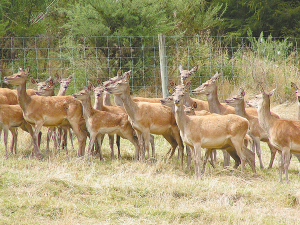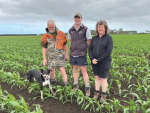Deer Industry New Zealand (DINZ) says a recently released draft of an updated Deer Code of Welfare is “a positive forward-looking document”.
The draft code was released on Friday and, according to the Ministry for Primary Industries (MPI), incorporates advances in animal welfare science; updates to deer farming systems and management practices; and changing views and expectations by the New Zealand public.
The revised Code was drafted by the National Animal Welfare Advisory Committee (NAWAC) after consultation with DINZ, deer veterinarians, MPI, animal welfare lobby groups and animal welfare experts.
“Many of the proposed changes to minimum standards are based on good farming practice,” says DINZ chief executive Innes Moffatt. “However, there are a few changes that will need further consideration by deer farmers and veterinarians who have experience with farmed deer.”
He says the deer farming industry is well-known for its high standards of animal welfare, meaning the release of the revised Code is not a reflection of welfare concerns.
Instead, Moffatt says, the Code is just the latest in the list of Codes of Welfare for farm animals to be updated.
“The Code had a minor update in 2018 but most of the provisions have not been reviewed since 2007. This current review will stand us in good stead for at least the next decade.”
“We are pleased the Code clarifies the duties and responsibilities of farmers. Proposed changes include minimum standards for milking deer, an initiative that has been developed since the last Code was written,” Moffatt says.
“There’s more guidance on mating management, managing deer in enclosed spaces and a requirement for all farmers to have a written up-to-date animal health plan based on veterinary advice.”
As part of its review, NAWAC is proposing a regulation prohibiting the use of electro-immobilisation devices on deer.
Moffatt says DINZ will support the change as these devices are not suitable for deer and their use has long been discouraged.
“We will also support the NAWAC recommendation that there be a new regulation requiring that where deer are managed in intensive winter grazing systems, clean drinking water is available in the grazing area at all times. This is simply a reflection of good farming practice.”
Next month, DINZ will consult with deer farmers before drafting its submission on the code.
Moffatt also encourages farmers and others working in the sector to read the draft code and make their own submission before submissions close at 5pm on 10 November.
Once consultation is complete and the Code is gazetted, DINZ will be making sure everyone in the industry has access to the new Code and is familiar with the expectations and requirements for handling and managing animals.











